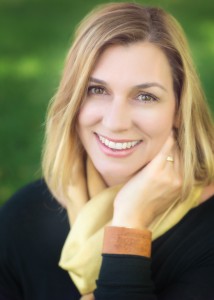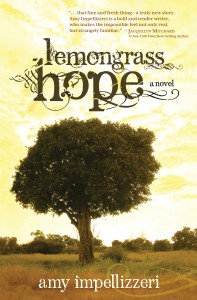What Book Clubs Are Teaching Me About Writing
 I’ll let you in on a little secret.
I’ll let you in on a little secret.
I always wanted to be in a Book Club.
I couldn’t articulate why because from the outside I couldn’t be sure exactly what occurred there – food, wine, maybe even some discussion about a, you know, book – but it just seemed to me from the way women spoke so reverently about their Book Clubs, that something special was happening there. And I wanted in.
Since no one was inviting me into their Book Clubs, I did something drastic.
I started my own.
About four years ago, new in town, I invited a bunch of women I hadn’t known very long into my home to discuss Kelly Corrigan’s The Middle Place. I put out flowers and food and wine and flavored teas. I lit candles and waited for the magic to happen.
And boy, did it ever.
If you’re in one already, you know what I mean. And if you’re not. Start one. Now.
Because Book Clubs are about one thing: connection.
Conversations about words on the page frame bigger conversations about what’s going on in our own worlds. Books essentially become mile markers in the members’ lives.
As I waited for my own novel to be released out into the world, I harbored a secret hope that Book Clubs would find my book. When Jacquelyn Mitchard endorsed my book, I was over the moon and hoped that would bode well for a positive reception among Book Clubs. (Oprah’s first Book Club Selection author? And she endorsed my book? Swoon.)
My publisher and I marketed the book as Book Club Fiction. And then it happened.
Book clubs across the country started reaching out:
We’re reading Lemongrass Hope!
Could you Skype in?
We’re local – could you join us live?
Suddenly the girl who was never invited into a Book Club before, had a full dance card. Over the last six months, I have had the privilege of attending dozens of book clubs both live and via Skype. And, from the hundreds of amazingly eclectic women who have invited me in, I’ve learned some important lessons – about life, sure – but also about writing. Lessons I take with me as I embark on writing my next novel:
 Your reader doesn’t have to love your main character(s) to love your book. I’ve had a few Book Club members whisper to me over passed hors d’oeuvres:
Your reader doesn’t have to love your main character(s) to love your book. I’ve had a few Book Club members whisper to me over passed hors d’oeuvres:
“Will it bother you if I didn’t really LOVE [pick a character: Kate Sutton and/or Ian Campton]?”
“Of course not. But what did you think of the book as a whole?”
“Oh! It was so thought-provoking, and stayed with me long after I finished it. I just didn’t love [Kate/Ian/some other character in the book].”
Recently, I participated in an online workshop presented by Literary Agent extraordinaire, Donald Maass, entitled “The Emotional Craft of Writing.” I’ve realized through my Book Club discussions that development of the emotional journey in the book can be determinative. As Donald Maass said at one point of our workshop: The reader needs to feel like they have “been through something and come out on the other side.”
So love my characters or hate them. But I hope you’ll tell me you felt something. And that you loved that. That goal will be my paramount priority the next time around.
Details are important. Your readers are paying attention. That pesky timeline? It matters! I’ve had so many readers tell me that after finishing Lemongrass Hope (which has a twist at the end), they immediately flipped back to the beginning to re-read Part One and make sure it still worked.
Whew. It did.
In response to probing plot sequence questions, I’ve had to actually flip the book open and point to page and lines to provide evidence to back up my answers. It wasn’t enough that I was the author and I said so. They wanted to make sure I handled the details properly in the story’s pages.
The ending matters. But not the way you might think. Several people, including an agent who reviewed my first manuscript early on, expressed concern that the ending might be a bit too open to be “commercially satisfying.” When my manuscript found its way into the hands of Nancy Cleary at Wyatt-MacKenzie and she said “Change the ending? Don’t you dare” – I knew that my book had found its proper advocate.
My Book Club experience has unequivocally supported my belief that sometimes it is more satisfying to write a book that inspires discussion than to write one with a neatly tied-up ending. At nearly every book club, we start (or eventually conclude) by going around and finding out what all of the readers believe happened at the end of Lemongrass Hope. Nuances have been read into the ending that I never anticipated, but am starting to believe myself. If written properly, the unique perspectives of each woman can make your story a “living” one – one that evolves even after the pages conclude.
Book Clubs are reading so much more than their husbands/partners think. When I’m at a Book Club, inevitably, a male person crashes with a dazed and confused look on his face:
Hey, wait! You guys actually discuss books at these things?
Sure do. And they read every genre. I mean, sure, Book Clubs are reading 50 Shades of Grey now and again. But they are also reading Anna Karenina, debut novels, and non-fiction. They are always looking for something brand new to read. But you have to write something meaningful to deserve their coveted time.
Take the responsibility seriously.
I guarantee you – I will.
—
Amy Impellizzeri is a reformed corporate litigator and author. Her first novel, Lemongrass Hope (Wyatt-MacKenzie 2014) debuted as an Amazon best-seller, and her first non-fiction book, Lawyer Interrupted, (ABA Publishing) is due out in Spring 2015. Her essays and articles have appeared in The Huffington Post, The Glass Hammer, Divine Caroline, Hybrid Her, Skirt! Magazine, and ABA’s Law Practice Today, among more.
Category: On Writing
























Book Clubs have been my lifeline through several moves. And the women from all my bookclubs remain my closest friends. Now, sometimes when I read a book I think, “I know what Kristy or Lisa or Susan will say about this.” or sometimes I’ll finish a book and immediately put a sticky note on it to give to one of my girls. We are connected by these books.
And I have to say – we probably bond as much if not more over not liking a character together as we do over the characters we love. And the best discussions come from books we don’t all love, too. Sometimes I even show up at book club not really liking a book and leave loving it after I’ve heard new interpretations.
Hi Amy,
I thoroughly enjoyed reading this article. I have actually been umming and ahhing about starting a book club for ages! So feeling very inspired to so now.
Thanks 🙂
Claire
The book clubs I’ve belonged to, we’ve had to chase the husbands away because they’d read the books, too, and wanted someone to talk to them about. I’m thinking of starting a co-ed book club.
I love this piece. I have never been in a book club, but since my novel Long Hill Home came out in February 2015, I have been “guesting” regularly at book clubs as they discuss my book. I love the interaction with readers and their feedback about my work, but as you said in your article, the connection is the best part. I often leave a book club discussion with many new friends.
Thank you, Kathryn!
I looked up your book and see that you are – like me – a lawyer turned writer. Love it. Congratulations on your debut – let’s keep in touch!
Kathryn, like you, I love visiting book clubs to talk about my novels, CAPE MAYBE and PEACE BY PIECE. In fact, I joined my first book club after guesting with them. Readers ask wonderful questions and continue to delight me with their insights.
All the best with Long Hill Home
Amy, like you, I wanted to join a book club for years. When I worked full time, I could never find the time. Now that I retired from my day job, I belong to a local group and several on Goodreads. I love talking books and hearing the insights of other readers.
Intrigued that you marketing your book as book club fiction as I’ve never heard of that genre. Can you talk more about that?
Thanks,
Carol
Carol – So glad you found time for several book clubs. (By the way, virtual book clubs are new to me as well – what a wonderful use of technology – right?)
“Book Club Fiction” as I describe it actually spans several genres. For example, in my opinion, a book can be both historical fiction and book club fiction. Book club fiction is not formulaic, leaves much room for discussion, and often crosses over neatly with “Women’s Fiction” which finds the reader taking an emotional journey with a female protagonist. It’s becoming a term that is increasingly used by agents and publishers and I love the role book clubs play in getting the word out about emerging authors!!
Amy, thanks for that great description. My novels CAPE MAYBE and PEACE BY PIECE fit that crossover niche of book club and women’s lit. You have me thinking about how that impacts my marketing.
Thanks again
Wonderful! Thanks for connecting – look forward to checking out your books as well.
I have been in book clubs for most of the past 4 years. I LOVE book club. It’s like the best part of English class but with wine and no grades. It’s so interesting hearing others’ interpretation of a book, particularly endings.
“but with wine and no grades” – love it! So true!